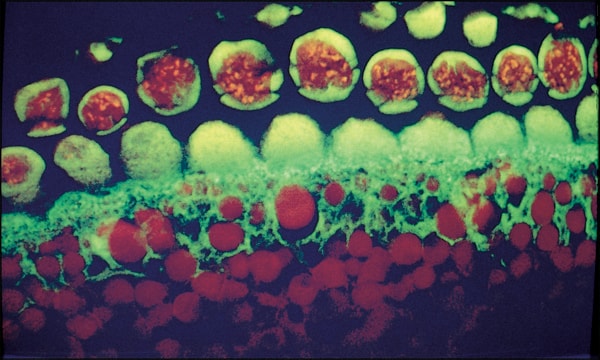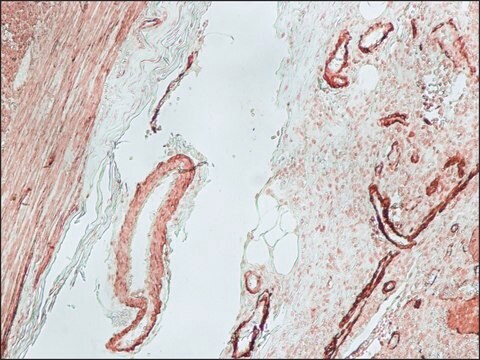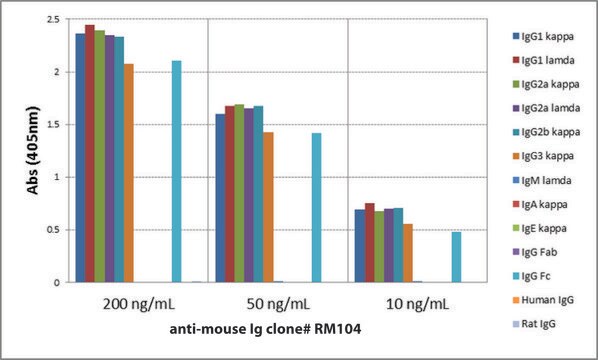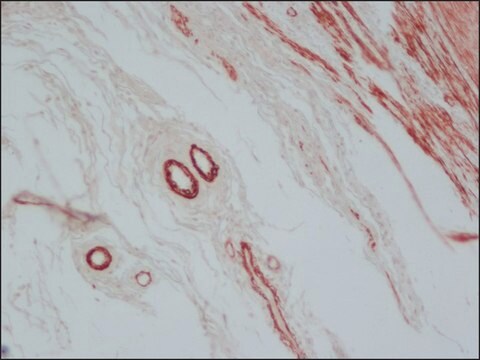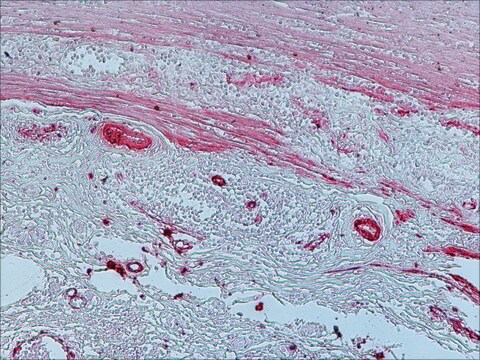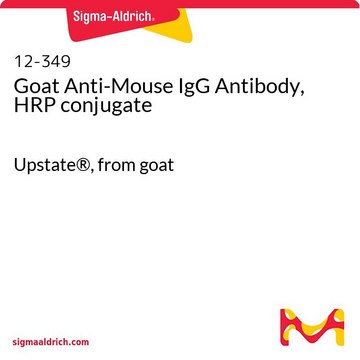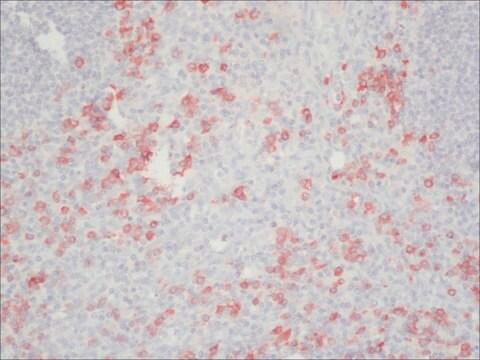B9904
Anti-Mouse IgG (Fc specific)–Biotin antibody produced in goat
affinity isolated antibody, buffered aqueous solution
About This Item
Empfohlene Produkte
Biologische Quelle
goat
Konjugat
biotin conjugate
Antikörperform
affinity isolated antibody
Antikörper-Produkttyp
secondary antibodies
Klon
polyclonal
Form
buffered aqueous solution
Speziesreaktivität
mouse
Konzentration
≥2 mg/mL
Methode(n)
direct ELISA: 1:50,000
immunohistochemistry (formalin-fixed, paraffin-embedded sections): 1:300
western blot: 1:200,000-1:400,000 using total cell extract of HeLa cells
Lagertemp.
−20°C
Posttranslationale Modifikation Target
unmodified
Suchen Sie nach ähnlichen Produkten? Aufrufen Leitfaden zum Produktvergleich
Allgemeine Beschreibung
Anwendung
Biochem./physiol. Wirkung
Sonstige Hinweise
Physikalische Form
Angaben zur Herstellung
Haftungsausschluss
Sie haben nicht das passende Produkt gefunden?
Probieren Sie unser Produkt-Auswahlhilfe. aus.
Lagerklassenschlüssel
10 - Combustible liquids
WGK
WGK 3
Flammpunkt (°F)
Not applicable
Flammpunkt (°C)
Not applicable
Hier finden Sie alle aktuellen Versionen:
Besitzen Sie dieses Produkt bereits?
In der Dokumentenbibliothek finden Sie die Dokumentation zu den Produkten, die Sie kürzlich erworben haben.
Kunden haben sich ebenfalls angesehen
Artikel
The enzyme-linked immunosorbent spot (ELISpot ) assay enables visualization of multiple secretory products from a single responding cell. The ELISpot provides both qualitative (type of immune protein) and quantitative (number of responding cells) information.
Unser Team von Wissenschaftlern verfügt über Erfahrung in allen Forschungsbereichen einschließlich Life Science, Materialwissenschaften, chemischer Synthese, Chromatographie, Analytik und vielen mehr..
Setzen Sie sich mit dem technischen Dienst in Verbindung.
